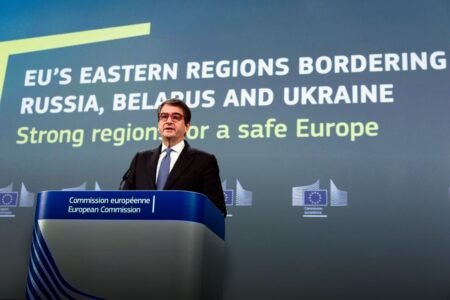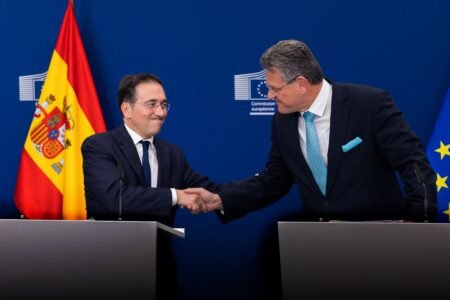(LUXEMBOURG) – The EU’s top Court sent back for review Wednesday a previous General Court ruling which upheld a fine of EUR 1.06 billion imposed on Intel in 2009 by the Commission for abuse of a dominant position.
The Commission imposed in 2009 a fine of EUR 1.06 billion on Intel, the US- based microchip manufacturer, for having abused its dominant position on the market for x86 central processing units (CPUs), in infringement of EU competition rules. The EU executive also ordered Intel immediately to bring an end to that infringement in so far as it had not done so already.
According to the Commission, Intel abused its dominant position on the worldwide market for x86 CPUs from October 2002 to December 2007, implementing a strategy aimed at foreclosing a competitor, Advanced Micro Devices Inc. (AMD), from the market.
The Commission considered that Intel was in a dominant position on the ground that it held a market share of roughly 70% or more, and that it was extremely difficult for competitors to enter the market and to expand as a result of the unrecoverable nature of investments to be made in research and development, intellectual property and production facilities.
According to the Commission, the abuse was characterised by several measures adopted by Intel vis-a-vis its own customers (computer manufacturers) and a European retailer of microelectronic devices, Media-Saturn-Holding.
Accordingly, Intel granted rebates to four major computer manufacturers (Dell, Lenovo, HP and NEC) on condition they purchased from Intel all, or almost all, of their x86 CPUs. Similarly, Intel awarded payments to Media-Saturn, which were conditioned on the latter selling exclusively computers containing Intel’s x86 CPUs.
According to the Commission, these rebates and payments induced the loyalty of the four manufacturers listed above and of Media-Saturn, and thus significantly diminished the ability of Intel’s competitors to compete on the merits of their x86 CPUs. Intel’s anti-competitive conduct thereby resulted in a reduction of consumer choice and in lower incentives to innovate.
On the basis of the 2006 Guidelines, the Commission imposed a fine of EUR 1.06 billion on Intel.
Intel brought an action against the Commission’s decision before the General Court, seeking the annulment of that decision or, at least, a substantial reduction of the fine.
However, in its 12 June 2014 judgement, the General Court dismissed Intel’s action in its entirety.
In its appeal against the judgement, Intel said the General Court, inter alia, had erred in law by failing to examine the rebates at issue in the light of all the circumstances of the case.
As regards that complaint, the Court of Justice notes that the General Court confirmed the Commission’s line of argument that loyalty rebates granted by an undertaking in a dominant position were, by their very nature, capable of restricting competition such that an analysis of all the circumstances of the case and, in particular, an as efficient competitor test (‘AEC test’) were not necessary.
The Court observes that, while the Commission emphasised that the rebates at issue were by their very nature capable of restricting competition, it nevertheless carried out an in-depth examination of the circumstances of the case in its decision, which led it to conclude that an as efficient competitor would have had to offer prices which would not have been viable and that, accordingly, the rebate scheme at issue was capable of foreclosing such a competitor. The AEC test therefore played an important role in the Commission’s assessment of whether the rebate scheme at issue was capable of having foreclosure effects on as efficient competitors.
The Court therefore holds that the General Court was required to examine all of Intel’s arguments concerning that test (such as, inter alia, the errors allegedly committed by the Commission as regards that test), which the General Court failed to do. The Court therefore sets aside the judgement of the General Court as a result of that failure in its analysis of whether the rebates at issue were capable of restricting competition.
The Court refers the case back to the General Court so that it may examine, in the light of the arguments put forward by Intel, whether the rebates at issue are capable of restricting competition.
Intel’s arguments alleging that the Commission lacked territorial jurisdiction to penalise the abuse, and alleging procedural irregularities that affected its rights of defence, were rejected by the Court.
Judgement in Case C-413/14 P – Intel Corporation Inc. v Commission








